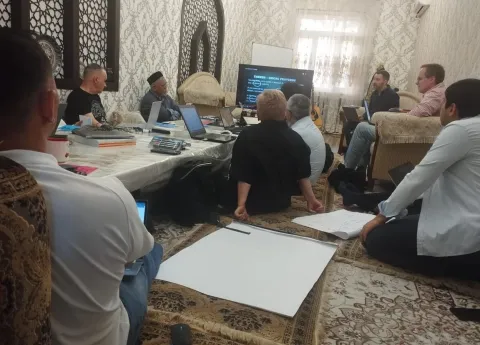A workshop on "Discourse in the book of Proverbs in Turkic languages," organized by the Institute for Bible Translation, was held in Tashkent on April 21-24. Translators and exegetical advisers from the Altai, Balkar, Siberian Tatar, Khorazm and Kyrgyz Bible translation projects participated.
Each team came with their own materials - folk parables in their languages - since biblical and folk parables are often similar to each other. First, there is obvious semantic overlap: close and sometimes identical formulas for describing good and evil, loyalty and treachery, piety and falling away from God. Secondly, structural parallels also emerged – both the biblical Hebrew Proverbs and folk parables in other languages make similar uses of rhythm, rhyme and imagery.
Workshop facilitators Justin Randolph, Murray Salisberry, and Nilufar Abdulsatarova spoke about the importance of preserving not only meaning but also structure when translating Proverbs. They noted that the richness and musicality of the Turkic languages make this possible. Many short phrases from Solomon's Proverbs have already entered Russian and other European languages, and the same result may be achieved in the Turkic languages.
The first part of the seminar discussed proverbs and folk sayings as a genre - the various types and the situations in which they are used. In the second part, the meaning and structure of Solomon's proverbs were analyzed in detail. There were lively discussions on each proverbial saying, which once again confirmed that ancient biblical texts are still relevant today. In the third part, the facilitators invited the participants to choose overlapping folk sayings and proverbs from the Bible and then analyze their structures.
The proverbs of the Turkic peoples and the biblical Proverbs are two worlds that reflect each other. IBT has decided to publish a book demonstrating these findings.

